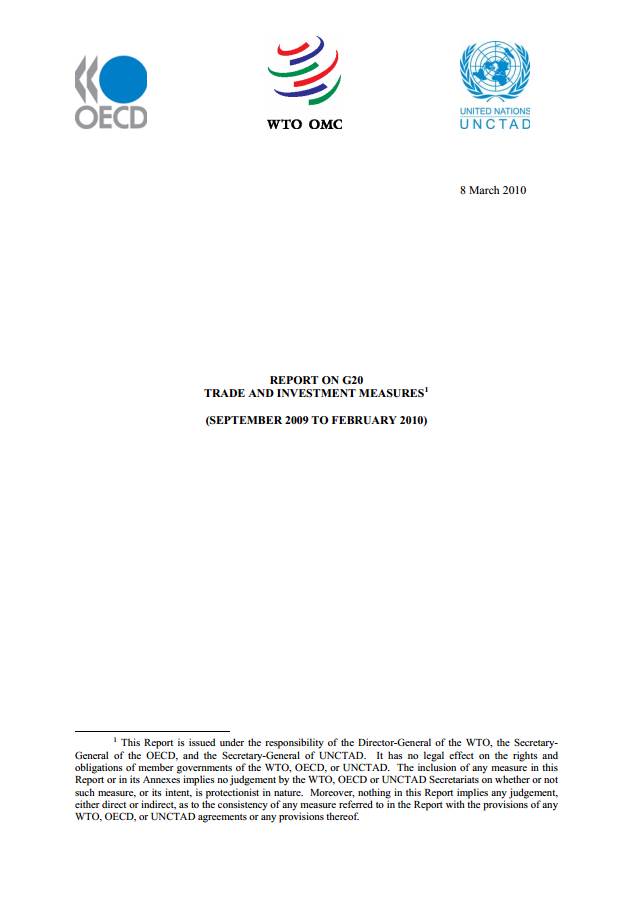Second Report on G20 Investment Measures
This second Report has been prepared in response to the request of the Group of Twenty (G20) to the WTO, together with other international bodies, within their respective mandates, to monitor and report publicly on G20 adherence to undertakings on resisting protectionism and promoting global trade and investment. G20 Leaders meeting in Pittsburgh on 25 September 2009 reaffirmed the commitment made at their previous meeting in London and stated in their Declaration (under the heading “An Open Global Economy”).
This report confirms the earlier finding, reported to the G20 Pittsburgh Summit, that most investment and investment-related measures point toward greater openness and clarity for investors. The current report also confirms the finding that G20 members’ emergency measures have not led to open discrimination against foreign investors. However, their potential to discriminate against foreign investors and to distort competition, including competition operating through international investment, remains a serious challenge.
Against this background, the following recommendations can be made:
- Continued close attention needs to be paid to the design, application and winding-up of measures taken in response to the crisis to ensure that they are effective in responding to the crisis while minimising anti-competitive impacts.
- In particular, government withdrawals from emergency programmes and individual rescue operations should be well timed, credible and transparent, in line with commitments made by G20 Leaders at the Pittsburgh Summit.
- Since enhanced transparency and accountability can facilitate non-discriminatory implementation of emergency measures, governments should continue providing public reporting and auditing of emergency response accounts, publish guidance for government and private participants in these programmes and undertake public consultations.
- Continuity in international monitoring by WTO, OECD and UNCTAD can help in this regard, and ensure that current endeavours against investment protectionism do not remain one-off initiatives.
















